选择热点
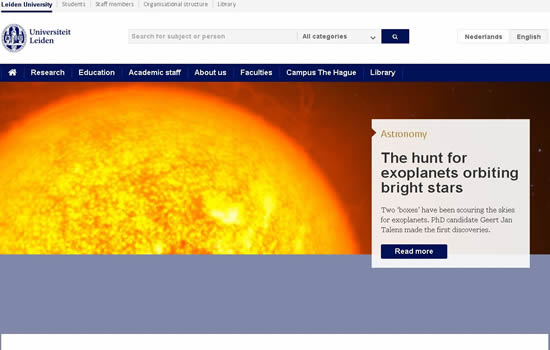 荷兰莱顿大学
荷兰莱顿大学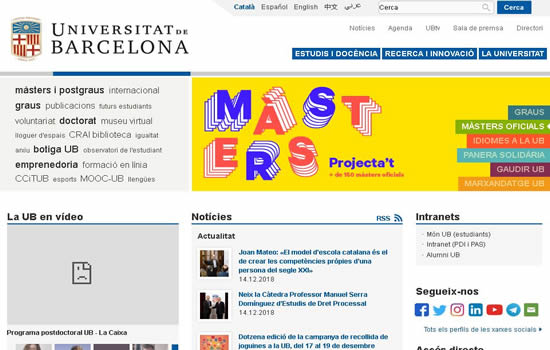 西班牙巴塞罗那大学
西班牙巴塞罗那大学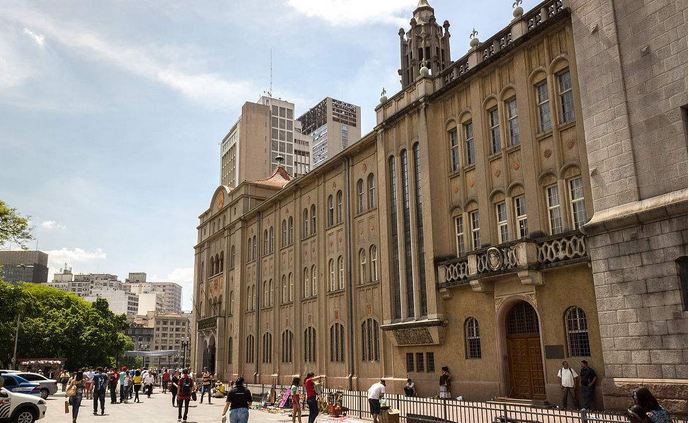 巴西圣保罗大学 University of Sao Paulo, Brazil
巴西圣保罗大学 University of Sao Paulo, Brazil 台湾南华大学 University of South China in Taiwan
台湾南华大学 University of South China in Taiwan 科技大学 National University of Defense Technology
科技大学 National University of Defense Technology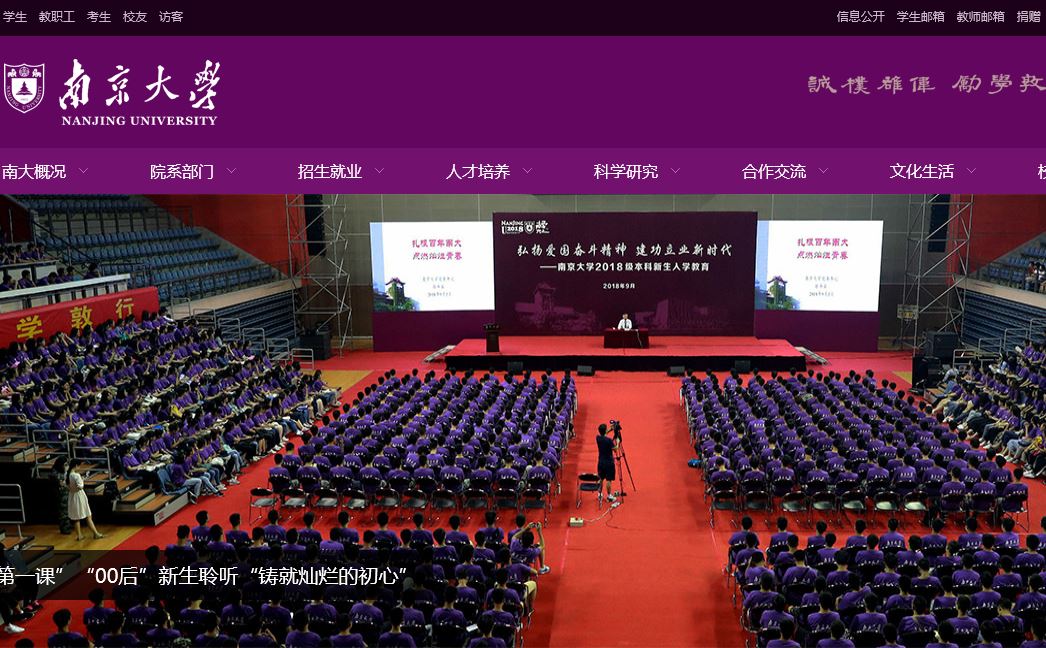 南京大学 Nanjing University
南京大学 Nanjing University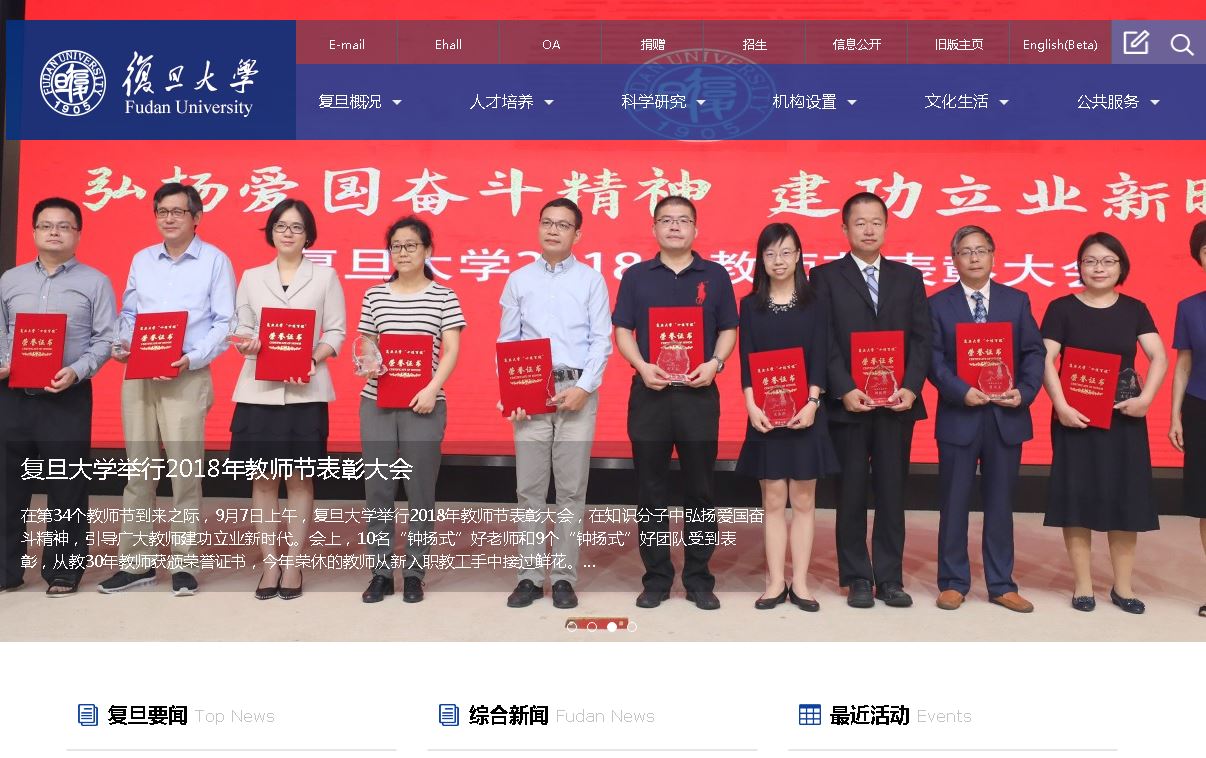 上海复旦大学 Fudan University
上海复旦大学 Fudan University 泗水大学(Ubaya)
泗水大学(Ubaya)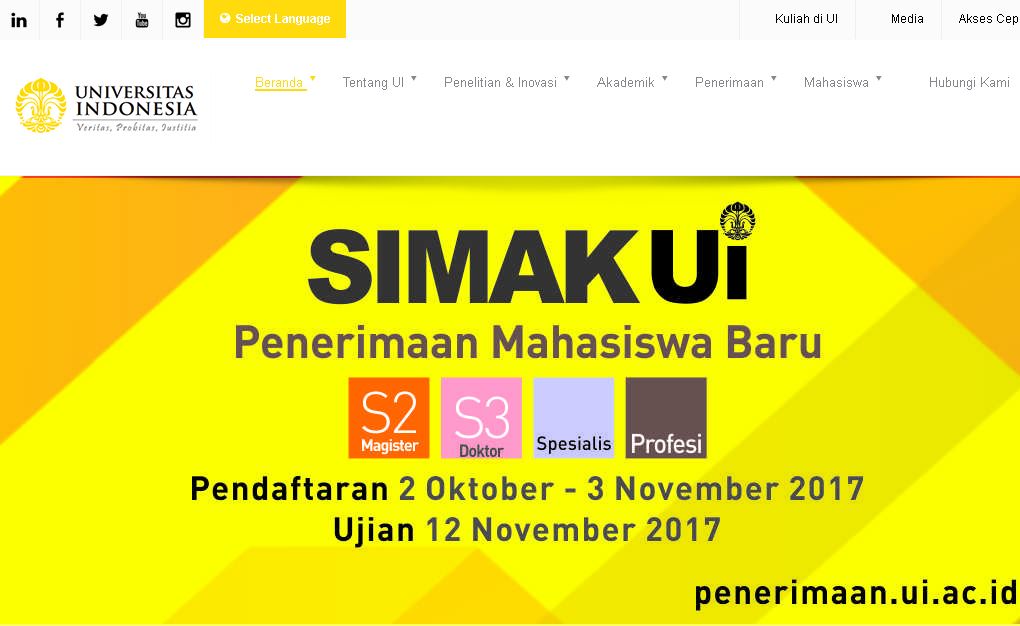 印尼大学 universitas indonesia
印尼大学 universitas indonesia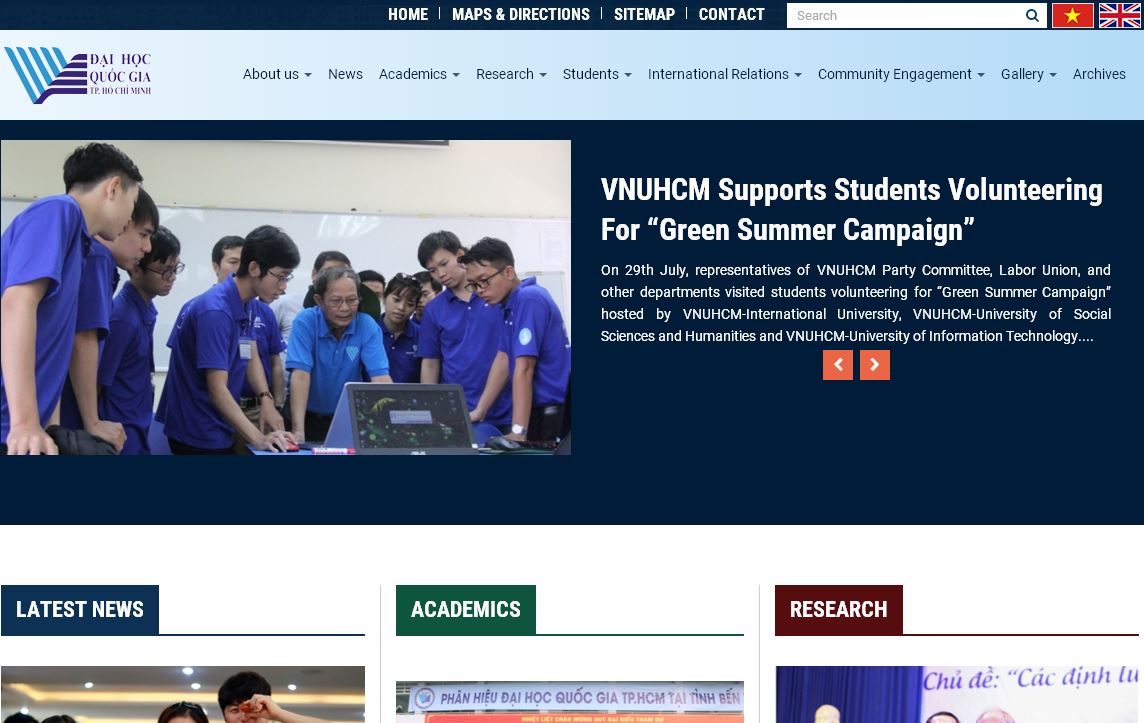 越南某大学 Vietnam National University
越南某大学 Vietnam National University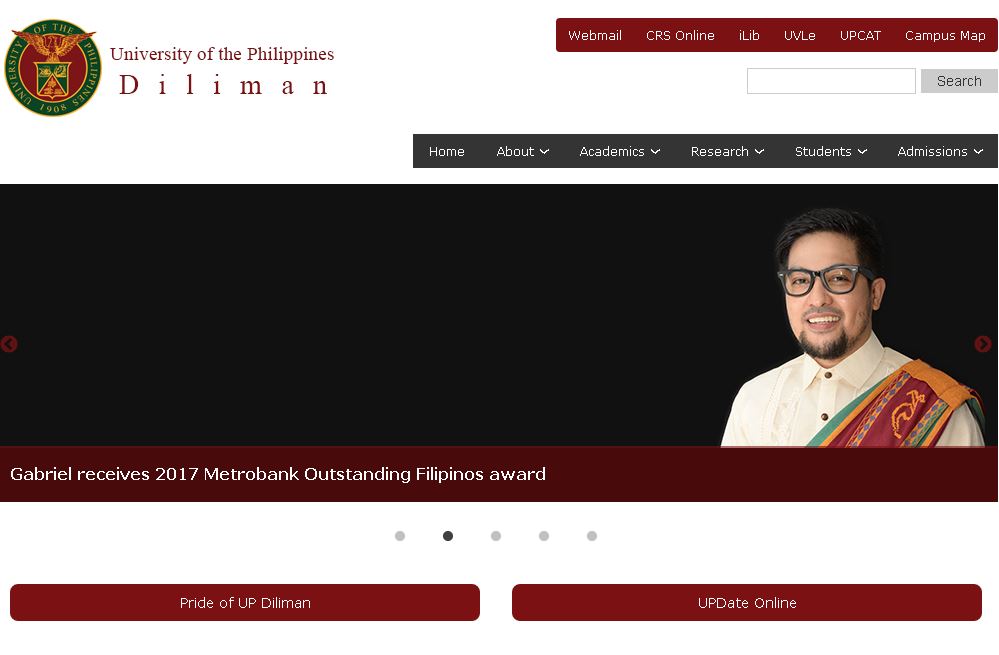 菲律宾大学 University Of The Philippines
菲律宾大学 University Of The Philippines
双语短文 · 开辟幸福人生
发布时间:2025-01-06
来源:大学网站
Methods of Economy 开辟幸福人生◎ Samuel SmilesThe methods of practicing economy are very simple.
Spend less than you earn.
That is the first rule.
A portion should always be set apart for the future.
The person who spends more than he earns, is a fool.
The next rule is to pay ready money, and never, on any account, to run into debt.
The person who runs into debt is apt to get cheated; and if he runs into debt to any extent, he will himself be apt to get dishonest.
Who pays what he owes, enriches himself.
”The next is, never to anticipate uncertain profits by expending them before they are secured.
The profit may never come, and in that case you will have taken upon yourself a load of debt which you may never get rid of.
Another method of economy is, to keep a regular account of all that you earn, and of all that you expend.
An orderly man will know beforehand what he requires, and will be provided with the necessary means for obtaining it.
Thus his domestic budget will be balanced; and his expenditure kept within his income.
It is difficult to fix the precise limits of economy.
Bacon says that if a man would live well within his income, he ought not to expend more than one-half, and save the rest.
This is perhaps too exacting; and Bacon himself did not follow his own advice.
What proportion of one’s income should be expended on rent?
That depends upon circumstances.
Wherever there is a large family, the more money that is put to one side and saved, the better.
Economy is necessary to the moderately rich, as well as to the comparatively poor man.
Without economy, a man cannot be generous.
He cannot take part in the charitable work of the world.
If he spends all that he earns, he can help nobody.
He cannot properly educate his children, nor put them in the way of starting fairly in the business of life.
Thousands of witnesses daily testify, that men even of the most moderate intelligence, can practice the virtue with success.
Men of all classes are, as yet, too little influenced by these considerations.
They are apt to live beyond their incomes.
To save money for avaricious purposes is altogether different from saving it for economical purposes.
The saving may be accomplished in the same manner by wasting nothing, and saving everything.
But here the comparison ends.
The miser’s only pleasure is in saving, the prudent economist spends what he can afford for comfort and enjoyment, and saves a surplus for some future time.
The avaricious person makes gold his idol, whereas the thrifty person regards it as a useful instrument, and as a means of promoting his own happiness and the happiness of those who are dependent upon him.
The miser is never satisfied.
He amasses wealth that he can never consume, but leaves it to be squandered by others, probably by spendthrifts; whereas the economist aims at securing a fair share of the world’s wealth and comfort, without any thought of amassing a fortune.
There is a dignity in the very effort to save with a worthy purpose, even though the attempt should not be crowned with eventual success.
It produces a well regulated mind it gives prudence a triumph over extravagance; it gives virtue the mastery over vice; it puts the passions under control; it drives away care; it secures comfort.
Saved money, however little, will serve to dry up many a tear; will ward off many sorrows and heart burnings, which otherwise might prey upon us.
Possessed of a little store of capital, a man walks with a lighter step his heart beats more cheerily.
When interruption of work or adversity happens, he can meet them; he can recline on his capital, which will either break his fall, or prevent it altogether.
By prudential economy, we can realize the dignity of man; life will be a blessing.
想要生活节俭是一件十分容易的事。
首要原则是:收入大于支出。
为了将来,我们应该储存一部分钱。
那些支出大于收入的人,是十足的笨蛋。
第二条原则就是不要四处借钱。
抵制任何让自己负债累累的行为。
负债的人大都习惯编造谎言。
某人一旦债务缠身,他就很容易变得不诚实。
将花销控制在收入的范围内,就会使自己变得富有。
”第三条原则就是在不确定的利润到手之前,永远不要动用自己的存款。
一旦没有得到利润,你便会深陷债务危机,甚至永远不能翻身。
第四条原则就是定期将你所有的收入与花销记录下来。
无论做什么事,一个生活有规划的人事先总会知道要做什么,并提供此事所需的资金。
更重要的是,他们往往能够达到收支平衡。
人们很难精准地确定节俭的范围和程度。
培根曾说过,如果一个人要达到收支平衡,他花销的数额一定不能超出收入额的一半,并能将其余的钱都存起来。
或许这种定位太过苛刻,连培根也没有遵循自己的言论。
一个人应该将收入的多少用在房租上?
这恐怕得由个人的情况而定。
无论家庭成员有多少,积累的钱越多,人们的生活就越好。
节俭,无论对中等收入家庭还是贫穷人群,都是至关重要的。
不知道节俭的人,就无法成为一个慷慨大方的人。
囊中羞涩的他,只能远离所有的社会慈善活动。
一个人假如身无分文,那就根本谈不上帮助别人。
他既不能给予孩子良好的教育,也不能指导孩子在社会上找到发展方向。
日常生活中,成千上万的事实已充分证明,即使智商不高的人,也可以成功地养成节俭的习惯。
然而,节俭对于各阶层人士的影响仍显得微不足道。
他们更习惯过着负债的生活。
出于贪欲与吝啬而存钱与节俭是截然不同的概念。
两者都主张杜绝浪费,竭尽全力节省每一样东西,不过两者的出发点则各不相同。
守财奴唯一的乐趣在于积累;而谨慎的节俭之人是在力所能及的范围内,尽情享受生活的同时,积攒钱财以备不时之需。
在贪婪的人心中,金子就是他的偶像;而在节俭之人看来,金子只是一种有用的工具,一种提高自身以及家人生活质量的物质。
守财奴永远不会有满足感。
他们从不享用自己积累起来的财富,而他们留下的遗产,最大的可能就是被他的家人挥霍一空。
而节俭的人根本没有聚敛多少财富的想法,他们在乎的是眼前的生活,确保优质生活的同时积累金钱。
在极具价值目标的激励下,一个人努力地节省金钱,即便最终没有成功,也能够体现个人的尊严。
这一过程能够促使人更好地组织思想,彻底改掉肆意浪费的陋习,促使美德战胜邪恶,并且能控制住冲动,解除忧虑,确保人们过上舒适的生活。
即便你的储蓄少得可怜,也可以使你抹去许多泪水,摆脱痛苦与不安的困扰。
有部分存款在手,我们的步履就会变得轻盈,心情也会更加愉悦。
当失业或不幸降临时,我们可以坦然地接受一切,可以利用现有的资本战胜困难或阻止情况恶化。
通过一个人的节俭,我们可以看到他的尊严,生活也将变成一种福音。
【双语短文 · 开辟幸福人生查看网站:[db:时间]】
Spend less than you earn.
That is the first rule.
A portion should always be set apart for the future.
The person who spends more than he earns, is a fool.
The next rule is to pay ready money, and never, on any account, to run into debt.
The person who runs into debt is apt to get cheated; and if he runs into debt to any extent, he will himself be apt to get dishonest.
Who pays what he owes, enriches himself.
”The next is, never to anticipate uncertain profits by expending them before they are secured.
The profit may never come, and in that case you will have taken upon yourself a load of debt which you may never get rid of.
Another method of economy is, to keep a regular account of all that you earn, and of all that you expend.
An orderly man will know beforehand what he requires, and will be provided with the necessary means for obtaining it.
Thus his domestic budget will be balanced; and his expenditure kept within his income.
It is difficult to fix the precise limits of economy.
Bacon says that if a man would live well within his income, he ought not to expend more than one-half, and save the rest.
This is perhaps too exacting; and Bacon himself did not follow his own advice.
What proportion of one’s income should be expended on rent?
That depends upon circumstances.
Wherever there is a large family, the more money that is put to one side and saved, the better.
Economy is necessary to the moderately rich, as well as to the comparatively poor man.
Without economy, a man cannot be generous.
He cannot take part in the charitable work of the world.
If he spends all that he earns, he can help nobody.
He cannot properly educate his children, nor put them in the way of starting fairly in the business of life.
Thousands of witnesses daily testify, that men even of the most moderate intelligence, can practice the virtue with success.
Men of all classes are, as yet, too little influenced by these considerations.
They are apt to live beyond their incomes.
To save money for avaricious purposes is altogether different from saving it for economical purposes.
The saving may be accomplished in the same manner by wasting nothing, and saving everything.
But here the comparison ends.
The miser’s only pleasure is in saving, the prudent economist spends what he can afford for comfort and enjoyment, and saves a surplus for some future time.
The avaricious person makes gold his idol, whereas the thrifty person regards it as a useful instrument, and as a means of promoting his own happiness and the happiness of those who are dependent upon him.
The miser is never satisfied.
He amasses wealth that he can never consume, but leaves it to be squandered by others, probably by spendthrifts; whereas the economist aims at securing a fair share of the world’s wealth and comfort, without any thought of amassing a fortune.
There is a dignity in the very effort to save with a worthy purpose, even though the attempt should not be crowned with eventual success.
It produces a well regulated mind it gives prudence a triumph over extravagance; it gives virtue the mastery over vice; it puts the passions under control; it drives away care; it secures comfort.
Saved money, however little, will serve to dry up many a tear; will ward off many sorrows and heart burnings, which otherwise might prey upon us.
Possessed of a little store of capital, a man walks with a lighter step his heart beats more cheerily.
When interruption of work or adversity happens, he can meet them; he can recline on his capital, which will either break his fall, or prevent it altogether.
By prudential economy, we can realize the dignity of man; life will be a blessing.
想要生活节俭是一件十分容易的事。
首要原则是:收入大于支出。
为了将来,我们应该储存一部分钱。
那些支出大于收入的人,是十足的笨蛋。
第二条原则就是不要四处借钱。
抵制任何让自己负债累累的行为。
负债的人大都习惯编造谎言。
某人一旦债务缠身,他就很容易变得不诚实。
将花销控制在收入的范围内,就会使自己变得富有。
”第三条原则就是在不确定的利润到手之前,永远不要动用自己的存款。
一旦没有得到利润,你便会深陷债务危机,甚至永远不能翻身。
第四条原则就是定期将你所有的收入与花销记录下来。
无论做什么事,一个生活有规划的人事先总会知道要做什么,并提供此事所需的资金。
更重要的是,他们往往能够达到收支平衡。
人们很难精准地确定节俭的范围和程度。
培根曾说过,如果一个人要达到收支平衡,他花销的数额一定不能超出收入额的一半,并能将其余的钱都存起来。
或许这种定位太过苛刻,连培根也没有遵循自己的言论。
一个人应该将收入的多少用在房租上?
这恐怕得由个人的情况而定。
无论家庭成员有多少,积累的钱越多,人们的生活就越好。
节俭,无论对中等收入家庭还是贫穷人群,都是至关重要的。
不知道节俭的人,就无法成为一个慷慨大方的人。
囊中羞涩的他,只能远离所有的社会慈善活动。
一个人假如身无分文,那就根本谈不上帮助别人。
他既不能给予孩子良好的教育,也不能指导孩子在社会上找到发展方向。
日常生活中,成千上万的事实已充分证明,即使智商不高的人,也可以成功地养成节俭的习惯。
然而,节俭对于各阶层人士的影响仍显得微不足道。
他们更习惯过着负债的生活。
出于贪欲与吝啬而存钱与节俭是截然不同的概念。
两者都主张杜绝浪费,竭尽全力节省每一样东西,不过两者的出发点则各不相同。
守财奴唯一的乐趣在于积累;而谨慎的节俭之人是在力所能及的范围内,尽情享受生活的同时,积攒钱财以备不时之需。
在贪婪的人心中,金子就是他的偶像;而在节俭之人看来,金子只是一种有用的工具,一种提高自身以及家人生活质量的物质。
守财奴永远不会有满足感。
他们从不享用自己积累起来的财富,而他们留下的遗产,最大的可能就是被他的家人挥霍一空。
而节俭的人根本没有聚敛多少财富的想法,他们在乎的是眼前的生活,确保优质生活的同时积累金钱。
在极具价值目标的激励下,一个人努力地节省金钱,即便最终没有成功,也能够体现个人的尊严。
这一过程能够促使人更好地组织思想,彻底改掉肆意浪费的陋习,促使美德战胜邪恶,并且能控制住冲动,解除忧虑,确保人们过上舒适的生活。
即便你的储蓄少得可怜,也可以使你抹去许多泪水,摆脱痛苦与不安的困扰。
有部分存款在手,我们的步履就会变得轻盈,心情也会更加愉悦。
当失业或不幸降临时,我们可以坦然地接受一切,可以利用现有的资本战胜困难或阻止情况恶化。
通过一个人的节俭,我们可以看到他的尊严,生活也将变成一种福音。
【双语短文 · 开辟幸福人生查看网站:[db:时间]】
- 上一篇: 双语短文 · 幸福是一段旅程
- 下一篇: 英汉对照|托马斯诗选:永不触及那忘却的黑暗
相关阅读
目录列表
资讯列表
英语资讯


共0条评论
网友评论温馨提示:您的评论需要经过审核才能显示,请文明发言!